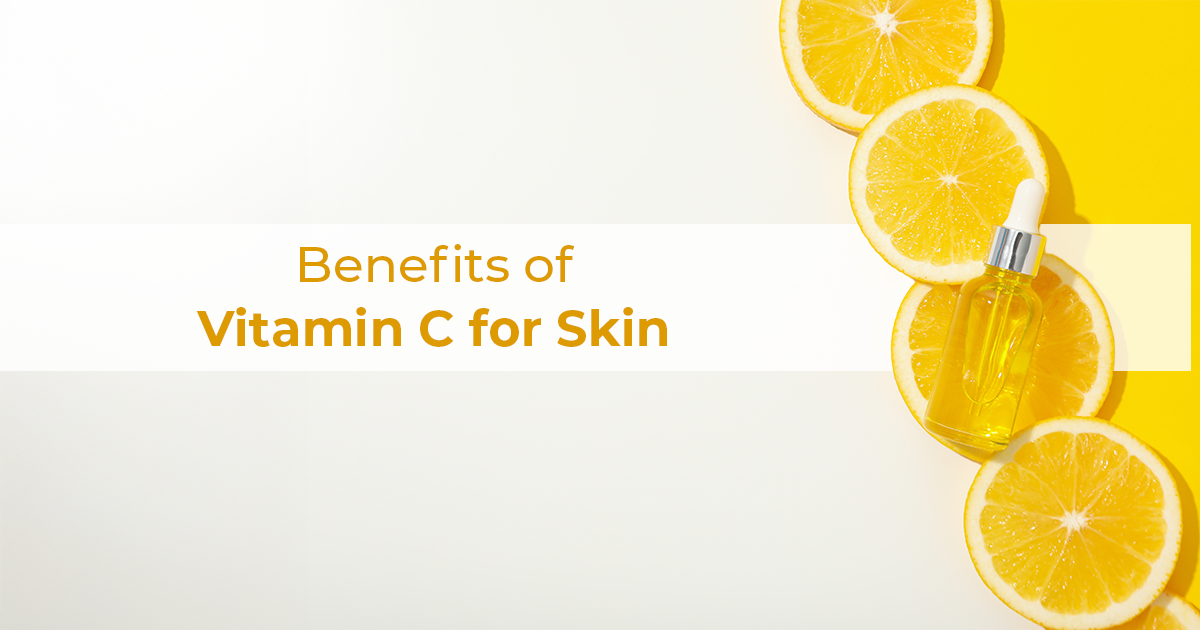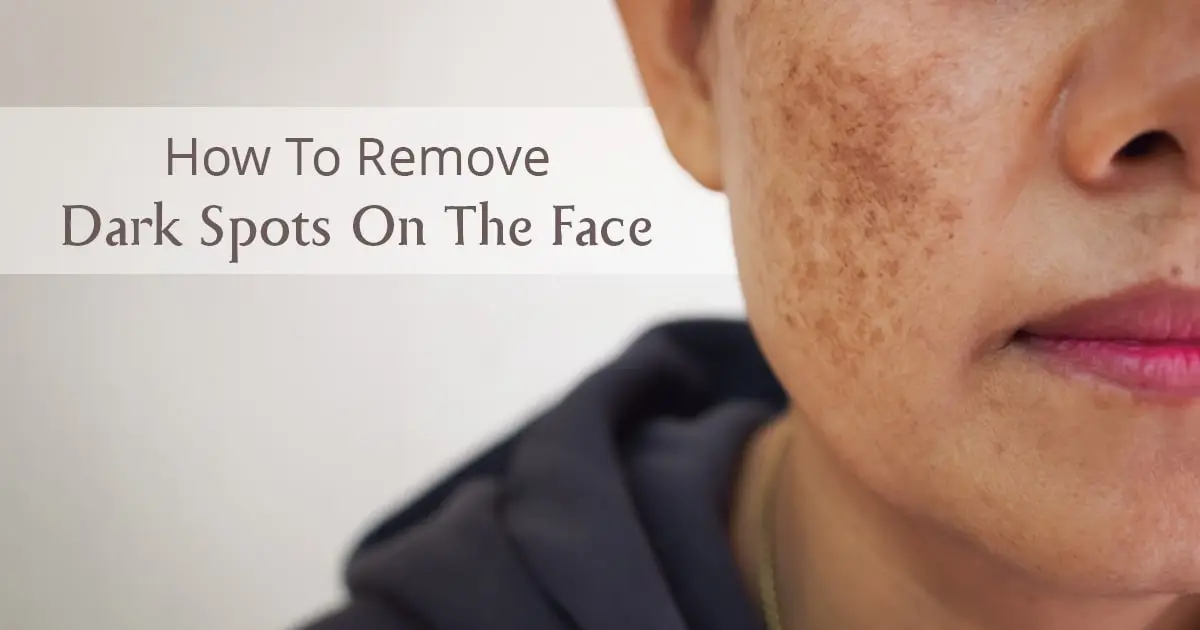
If you have spent any time scrolling through skincare content lately, you probably noticed vitamin C is everywhere. And honestly? It deserves the hype! This powerhouse ingredient has been a staple in dermatologists' recommendations for years. Whether you are dealing with dark spots, fine lines, or just want that healthy glow, vitamin C might be exactly what your skincare routine is missing. 1
But what makes this vitamin such a game-changer? If you are wondering the same, this blog is for you. It will help you uncover the top 10 benefits of vitamin C for skin, along with tips to use it for the best results. Let’s dive in!
Key Takeaways
|
What is Vitamin C?
Vitamin C is also known as ascorbic acid. It is a water-soluble vitamin that is a powerful antioxidant. It helps protect your cells from damage caused by free radicals. It also plays a crucial role in collagen production, which is essential for healthy skin. The vitamin also helps your immune system function properly. The best sources of vitamin C are oranges, grapefruits, strawberries, kiwis, bell peppers, and broccoli. 1 2
Now that you know what vitamin C is, let's talk about why your skin absolutely loves it. Here are the top benefits of vitamin C for skin health.
Top 10 Benefits of Vitamin C for Skin
1. Powerful Antioxidant Protection
Every day, your skin is exposed to things like sunlight, pollution, and stress. These can create little, harmful molecules in your body called free radicals. They attack your skin cells and cause damage, leading to dullness, wrinkles, and early signs of aging. Vitamin C also has antioxidant properties, due to which it helps neutralise these free radicals before they can do harm. 1
2. Boosts Collagen Production
Vitamin C is essential for collagen synthesis. Collagen is the protein that keeps your skin firm, plump, and youthful-looking. As we age, collagen production naturally decreases, leading to fine lines and sagging. Vitamin C helps stimulate collagen formation, improving skin elasticity and reducing the appearance of wrinkles. 1
3. Brightens and Evens Out Skin Tone
If you're battling dullness or uneven skin tone, vitamin C is your friend. It inhibits melanin production, which helps fade dark spots, hyperpigmentation, and post-acne marks. Regular use can reveal a more radiant, even complexion that looks naturally luminous. 1
4. Lightens Dark Circles
Those stubborn under-eye circles do not stand a chance against vitamin C. It helps strengthen the delicate skin under your eyes to help diminish the appearance of dark circles. It also helps inhibit melanin production, which may further help fade under-eye pigmentation. 3 1
5. Accelerates Wound Healing
Vitamin C plays a vital role in every stage of wound healing. It helps white blood cells fight infection, supports the production of collagen, and ensures proper tissue repair. When vitamin C levels are low, wounds may heal slowly or lead to scars. 4
6. Provides Sun Damage Protection
UV rays from the sun can damage the skin by creating harmful molecules called reactive oxygen species. Vitamin C acts as a strong antioxidant to help neutralise them. However, it is important to note that vitamin C is not a replacement for sunscreen. Instead, you can incorporate it into your morning skincare routine for added protection against sun damage. 5
7. Reduces Inflammation and Redness
Thanks to its anti-inflammatory properties, vitamin C can help calm irritated skin and reduce redness. This makes it beneficial for conditions like rosacea and acne. However, always patch test it before use, especially if you have sensitive skin. 1
8. Hydrates and Plumps Skin
Certain forms of vitamin C, like magnesium ascorbyl phosphate, have a hydrating effect on the skin. Well-hydrated skin appears plumper, smoother, and more youthful, with less visible fine lines. 1
9. Improves Skin Texture
Vitamin C, in combination with other hydrating ingredients like peptides, helps improve your skin’s cell turnover. This means dead skin cells are shed more efficiently, revealing fresher skin underneath. Therefore, regular use of vitamin C can refine your skin's texture, making it smoother and softer to the touch. 6
10. Enhances Overall Skin Health
Beyond specific concerns, vitamin C also supports overall skin vitality. It strengthens the skin barrier and promotes a healthy glow. 1 7
Vitamin C for Different Skin Types
The beauty of vitamin C is that it can benefit all skin types. For instance, people with acne and pimples can enjoy the benefits of vitamin C for skin through its ability to prevent them. It also helps fade post-acne marks. Similarly, dry skin types benefit from vitamin C's hydrating properties. 1
That said, if you have sensitive skin, it is best to use vitamin C with caution. Start with a lower concentration and see how your skin reacts to it. Based on your skin type, you can also pair vitamin C with other ingredients. Learn more about it in the next section.
Vitamin C and Other Ingredients
Vitamin C plays well with many skincare ingredients, but some combinations are better than others. Here are some ingredients you can combine with it:
- Vitamin E: Together with vitamin C, it shows a better antioxidant effect than either of the two vitamins alone. 8
- Hyaluronic Acid: It provides hydration without interfering with vitamin C's benefits. 9
- Sunscreen: It helps maximise sun protection during the day. 10
- Peptides: In combination with vitamin C, they help improve cell turnover to improve skin texture and prevent signs of aging. 6
Some ingredients do not go well with vitamin C. For instance, both vitamin C and retinol are powerful actives. Together, they may irritate your skin. For the same reason, you should avoid using AHAs like glycolic acid and lactic acid with them. Use them at different times - vitamin C in the morning and retinol or AHAs at night. 11 12
How to Use Vitamin C for Skin & Body
To use vitamin C for your skin and body, always cleanse first. You can use a gentle face wash or body lotion for it. Here are some other tips you can follow: 13 14
- Use vitamin C serum on dry skin before applying heavier creams. This ensures better absorption.
- You can also use body lotions and creams infused with vitamin C. It is best to use such formulations on slightly damp skin.
- If you are new to vitamin C, start with 2-3 times per week and build up to daily use.
- Keep your vitamin C products in cool, dark places, as they can oxidise when exposed to light and air. This can make them ineffective.
- When taking vitamin C tablets for skin benefits, avoid overconsumption. You should not consume more than 2,000 mg of vitamin C per day. Always consult a doctor before taking supplements.
Possible Risks of Vitamin C for Skin
While vitamin C is generally safe, there are some things you should keep in mind: 14 15 16
- Skin Irritation: High concentrations of vitamin C can cause redness, tingling, or irritation, especially for sensitive skin
- Sun Sensitivity: Always use sunscreen if you are using active ingredients like vitamin C.
- Allergic Reactions: Some people may experience allergic reactions to vitamin C. That is why skin patch testing is important before use.
- Digestive Issues: High doses of vitamin C supplements may cause digestive issues like diarrhoea.
If you experience persistent irritation or adverse reactions, discontinue use and consult a dermatologist.
Final Thoughts
From its collagen-boosting abilities to its brightening effects, the benefits of vitamin C for skin are backed by solid science. No wonder it is a skincare superstar! Whether you choose topical products or vitamin C tablets for skin benefits (or both), incorporating this powerful antioxidant into your skincare routine can transform your skin over time. However, remember, consistency is key. Give your skin at least 4-6 weeks to see noticeable improvements!
Frequently Ask Questions:
1. What does vitamin C do to your face?
Vitamin C brightens your complexion and reduces dark spots. It also stimulates collagen production and protects the skin against environmental damage. It helps create a more even, radiant skin tone while fighting signs of ageing like fine lines and wrinkles.
2. Can I use vitamin C on my skin every day?
Yes, most people can use vitamin C daily once their skin has adjusted to it. Start with 2-3 times per week and gradually increase frequency. Always follow up with sunscreen for optimal sun protection.
3. Does vitamin C make your skin glow?>
Absolutely! Vitamin C is known for promoting a natural, healthy glow. It brightens dull skin, evens out tone, and improves overall radiance by enhancing skin cell turnover and reducing oxidative stress.
4. Is vitamin C safe during pregnancy?>
Topical vitamin C is generally considered safe during pregnancy. However, it is always best to consult your healthcare provider before introducing new skincare products. Oral vitamin C supplements are also typically safe in recommended doses of 85 mg to 2,000 mg per day. But again, always check with your doctor before adding them to your diet.
4. Does vitamin C remove tan?>
Yes, vitamin C may help fade tan due to its brightening benefits. However, it works gradually with consistent use. Also, it is more effective for prevention when used with sunscreen rather than as a quick tan-removal solution.







.webp)



